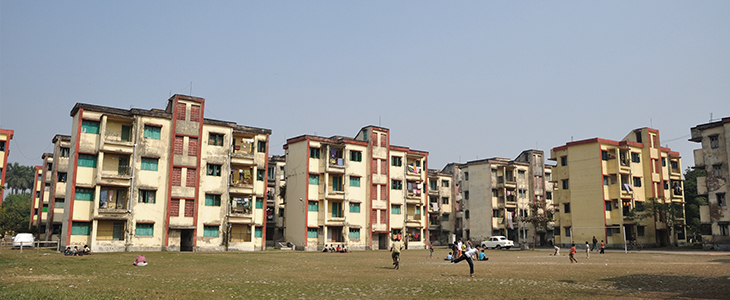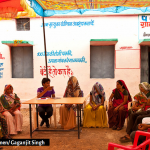
Law, Technology and Tensions
27 March 2017
This is the fifth part of the Raghu Bytes series on ‘Avoiding Accountability’.
The decision of the government to give MLAs the power to decide how many houses could be allocated to each village, caused a great deal of gnashing of teeth amongst Panchayat elected representatives. However, by the letter of the law, this allocation of responsibility by the government was not wrong. After all, the MLAs were not going to select beneficiaries, but were only allocating targets. Little did it matter that the MLAs now had powers to favour those villages that voted for them and harass those that did not.
Even as the government were walking the tightrope, other measures to increase the accountability of participatory processes were put in place. One of them – which I thought could be crude and effective – was to mandatorily video graph all meetings of the Grama Sabhas. Thus, if beneficiary selection was being done by the Grama Sabhas, a visual record of these would be available for all of them to see. It seemed to be a measure that would end all irregularities in beneficiary selection.
However, there is no point in video graphing the proceedings of Grama Sabha meetings, if nobody watches these videos afterward.
Once selections of beneficiaries are done by the Grama Sabhas, these lists have to enter the official system. And who does that? A worthy named the data entry operator.
Let me introduce to you the new power broker in the village, the data entry operator. Over the past decade, computerisation of the Grama Panchayat offices has been a buzzword for ambitious and well-meaning bureaucrats. They have launched upon time bound programmes for completing computerisation. Internet connections have been provided to Panchayats, new extensions for buildings constructed, and spanking new computer systems installed. Software has been developed for each of the Panchayats needs and there has been visible change in how Panchayats transact their business.
The computerisation of the Panchayats has also led to new power relations being set up. Suddenly, the power of the Panchayat president, the elected representatives and the Panchayat and the Panchayat secretary, have paled before the presence of the data entry operator; he of the password and the fingerprint.
The data entry operator in a Panchayat is a powerful individual. He operates in dark and mysterious ways. He is a very busy man; much of his power is derived from his overwork. Many schemes and programmes, with their rapid transition to a semi computerised mode of functioning, now vitally depend upon the data entry operator for their smooth implementation. Most data entry operators have been appointed in the wake of the National Rural Employment Guarantee Programme; a programme that has depended on a computer based system of keeping records, right from its inception a decade back. Quite often, the data entry operator, burdened as he is by the workload of the NREGA, is hard pressed for time to do other data entry operations, including for the housing programmes.
The time lag between the actual meetings of the Grama Sabhas for beneficiary selection and the entry of these lists in the Panchayat computer provides plenty of scope for manipulation. It is at this level that pressures are applied, I am told, by both MLAs and Panchayat elected representatives, to manipulate the beneficiary lists. While this was always suspected, I heard that recently, a sincere officer at the district level decided to check the veracity of the beneficiary lists entered in the computer. He did this the hard way, by watching the videos of the Grama Sabhas. His diligence paid off; beneficiary lists were found to be roughly thirty percent at variance with the decisions of the Grama Sabhas.
I spoke to a senior officer dealing with housing programmes as to how such distortions could be avoided. He proposed to launch an app that would enable data on beneficiary selection to be uploaded in real time, even as the Grama Sabha meetings were held. I thought that would be a good idea overall, though I still had doubts about whether manipulation would end; the ingenuity of the crooked mind is limitless.
However, a politician that I know had a better idea and he went ahead and implemented it. He made a promise in his constituency that all beneficiaries would be covered in all villages, turn by turn. Villages were prioritised on the basis of the intensity of the houselessness problem. Using this method, the politician was able to get far more homes built at a double quick time, by avoiding disputes in beneficiary selection and concentrating money flows and supervision on each village, turn by turn. According to him, others waited for their turn, assured by the fact that when it came, their problem of houselessness would be fully addressed, once and for all.





